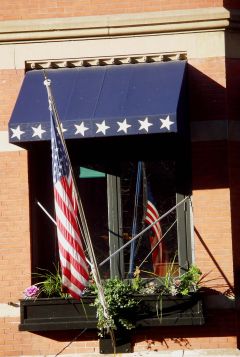December 04, 2006
Greg Palast Explains It to Me, and I Do My Best To Explain It To You

I have probably prolonged my debilitated state by reading Greg Palast's "Armed Madness" upon my sickbed.
Like my other op-ed heroes, Paul Krugman and Robert Kuttner, Palast is an economist -- a self described "forensic economist", as well as the kind of investigative reporter who is almost extinct. He follows money trails, and then reports on what he finds. Perhaps the fact that he is based London and writes for the BBC and The Observer, explains his immunity to the stupor that has engulfed most of the American press for the last several years.
His book has helped me to understand an aspect of the war in Iraq that isnot all that apparent, but, when elucidated, clarifies quite a lot. I hope that I can explain it accurately.
Palast says that the concept of "peak oil" is a ploy to make oil look scarce (which it isn't....yet) thus making the remaining oil more valuable, and adding to the profits of the usual crowd . (Palast is not opposed to the development of alternative energies, but he doesn't buy the self serving panic that has been promulgated by Big Oil about limited resources. I believe him.)
This war is about limiting and controlling the production of Iraqi oil, which is plentiful. When Saddam was dictating, he played loose and dirty with OPEC and their oil pricing cartel -- flooding the market sometimes, withholding at others, wreaking havoc with the plan to steadily increase oil prices. All factions agreed that he should be vanquished for his impertinence.
That said, there ensued a disagreement about how to bring the Iraqi oil fields back under control, so that oil prices could be stabilized. Big Oil and the Pentagon were of one mind, which favored a quickie coup, installation of an indigenous dictator (undoubtedly evil, but in an American way), who would take orders from you-know-who, a short, supported occupation, and an View image
">unfair distribution of Iraqi oil assets to the corporations who control the world, while maintaining a cozy relationship with OPEC. Kiss Saddam 's antics goodbye. The working model favored by Big Oil/Pentagon was the Pinochet Placement in Chile. George H.W. , his Saudi buddies, and Jim Baker III, (who is planning a "solution" to the mess, as we speak), are on this team. Kissinger consults.
On the opposing team are the neoconservatives of this administration, Cheney, W., Condi, Rove, Rumsfeld-the- Sacrificed, and other chickenhawks who have been since been banished -- ie Paul Wolfowitz to the World Bank and Richard Perle to The American Enterprise Institute. They would like to bust OPEC in the chops, stick around in Iraq for profit, gain political favor by providing cheap oil to American guzzlers, and control the world....too.
Neither team is altruistic, but, as Palast points out, capitalists are generally more peace loving because bombs on their property are costly and slow production. War profiteers, in contrast, enjoy profits as a war is ongoing.
If one uses the lens of the covert dimension of American infighting to view the more overt difficulties between the Shi'ites, Sunnis and Kurds, one can better understand the revolving door that seems arbitrarily deposits American administrative officials and Iraqi government personnel in and out of place.
The leaking of the Baker Commission memo (remember which team George Baker III is on) last week, and W.'s petulant, almost defiant response to it, is surely a piece of this puzzle. I know I don't understand the conflict well enough because I can't answer this question, that Dan Froomkin poses:.
So who leaked this memo, and why, and why now? Was it someone inside the White House, our outside? Was it an "authorized" leak, or an act of rebellion? Was it an attempt to put more pressure on Maliki? To destroy him? Or to show how screwed up things are generally?The senior administration officials wouldn't comment. And here's all Gordon would say in his story: "An administration official made a copy of the document available to a New York Times reporter seeking information on the administration's policy review."
And that's more than enough thinking for one day.
Just in: More on leakiness from Dan Froomkin.
Photo note: Two American flags, one under the awning with lots of stars - yours for extrapolation
Posted by Dakota at December 4, 2006 10:34 PM